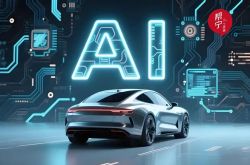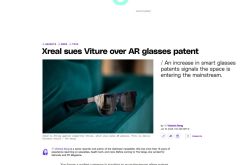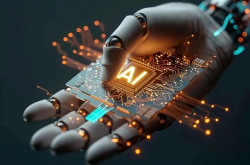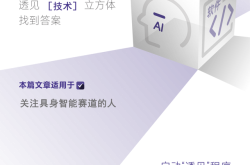Is Li Xiang Facing Renewed Criticism for Integrating AI into His Cars?
![]() 01/02 2025
01/02 2025
![]() 660
660
Li Xiang's Latest Assessment on Automotive Product Capabilities
I suspect, including myself, that most individuals still lack a comprehensive understanding of AI.
The AI commonly perceived is the incessant repetition of advertisements amidst short videos. It can animate old photographs and swap your girlfriend's face with that of Dilireba.
A deeper dive reveals that AI is essentially a 'mind' cultivated through vast amounts of data. However, it temporarily, and most likely permanently, lacks the capacity for independent human-like thought.
Hence, up until now, many individuals and even companies have merely toyed with the concept of AI. AI has yet to truly evolve into a new form of productive force (and I do not desire AI to completely supplant humans in all industries). Instead, it has served as a means or gimmick for profit.
As AI becomes cliché, many are beginning to resist these two familiar yet enigmatic English letters.
So, can AI shape the future? In other industries, I hesitate to draw hasty conclusions. But in the automotive sector, a preliminary conclusion has already been drawn.
On December 25, Ideal used three consecutive days of AI Talks to unveil its AI large model product, 'Li Xiang Tong Xue', and announced its vision to become an AI enterprise. Is such a vision feasible?
It's difficult to say. Currently, we observe many insiders supporting Ideal's upgrade in automotive manufacturing. Of course, there are also insiders who have questioned and even criticized Li Xiang's "re-emergence" in the industry, much like they did with extended-range electric vehicle (EREV) technology and the "refrigerator, TV, and sofa" approach.
This is not surprising. Leaders are bound to encounter diverse opinions, especially someone with the charisma of a major internet celebrity like Li Xiang. For Li Xiang, who has been tested numerous times, this may not be a significant issue, or perhaps it's a welcome challenge.
Let's first explore what AI can contribute to cars?
In fact, for this technological product that is AI, our daily interactions with it are not alienating.
'Please help me solve a linear equation.'
'I'm traveling to western Sichuan next week. Help me plan an itinerary.'
'Prepare a summary of Ideal Auto's financial status for each year for me.'
When you pose these questions to your computer, phone, or in-car system, AI is already activated. By scouring vast amounts of data on the internet and sorting through it, they can swiftly provide answers.
Due to data filtering issues, the accuracy of these answers may not be exceptionally high, but we must admit that AI is indeed transforming our lifestyle.
Returning to transportation, what AI can currently accomplish may be relatively limited. After many automakers install AI large models in their cars, they do not fully leverage the computing power of AI.
In the smart cabin system, the most prominent use of AI may be to engage in conversation and learn your driving habits. For instance, in what scenarios the air conditioning should be set to a specific temperature and what color the ambient lighting should be.
The utilization of Ideal Auto's released AI large model product, 'Li Xiang Tong Xue', is similar. It possesses real-time answering capabilities and object recognition functions, and can also provide voice explanations when answering users' questions.
At the level of intelligent driving assistance, AI can provide references for the decision-making of the intelligent driving system by analyzing vast amounts of road data, thereby making intelligent driving smoother and safer.
Actually, judging from the current application of AI technology in the entire automotive industry, I don't believe AI technology has brought revolutionary changes to the industry.
Ideal Auto also stated that the product form of AI will undergo three stages of iteration:
The first stage is to 'enhance my capabilities';
The second stage is to 'become my assistant';
The third stage is to 'become my silicon-based family member';
In summary, in the initial phase of AI technology release, AI can make smart cars more user-friendly, but it cannot completely supplant humans.
Simultaneously, Ideal Auto also stated: 'Artificial intelligence is the core competition among future automakers. And Ideal Auto also hopes to become an AI enterprise.'
Can Ideal's vision materialize?
As an automotive enterprise with an internet model, Ideal's approach is actually quite progressive.
The original intent of Ideal Auto's car manufacturing was to create a 'mobile home'; after proposing that AI will be the core competition among future automakers, Ideal's car manufacturing objective has also shifted to crafting a 'mobile home with silicon-based family members.'
From a broader perspective, Ideal's aspiration to usher in a new era of automotive technology is not an issue. Because in the future (it's uncertain how distant), automotive products will invariably surpass imagination, and cars may not necessarily remain cars.
Because for many consumers, the car they require is essentially a mode of transportation that enables them to travel freely. If autonomous driving becomes highly advanced, I believe many individuals would actually prefer not to drive.
Therefore, adhering to the AI technical path, Ideal Auto and numerous other smart electric vehicle manufacturers will spearhead rapid iterations in intelligent driving. And currently, we can also observe that many manufacturers, including Ideal, are swiftly advancing in the AI domain.
At the end of December, with the launch of Ideal's pioneering 'AI Reasoning Visualization' feature, Ideal vehicles equipped with end-to-end intelligent driving can visualize the reasoning process of the intelligent driving large model. In simple terms, drivers can comprehend the AI's thinking and execution process in advance.
AI Reasoning Visualization is actually preparing everyone for the advent of the AI intelligent driving era. In 2025, Ideal plans to achieve supervised L3-level intelligent driving.
Certainly, advancements in AI technology are also a vital prerequisite for achieving L3-level intelligent driving. When AI technology progresses and Ideal Auto implements L3-level intelligent driving, I believe AI can also serve as an assistant to humans.
The premise for all this is substantial technological and financial investment. Regarding technology and funding, I am actually not concerned. As the only new-energy vehicle company that is currently profitable, Ideal essentially encounters no difficulties in technological investment.
At a time when Ideal is aggressively entering the realm of AI technology, the genuine challenge it confronts is whether its strategy will 'veer off course.'
We are aware that among car consumers, there are those who favor virtual large screens and those who prefer mechanical buttons. Similarly, in the future, there will be those who like 'car robots' and those who prefer traditional and pure cars.
Hence, whether AI will be the core competition among automakers in the future remains uncertain. After all, there are still numerous automotive brands that cater to traditional, purist consumers.
When Ideal goes 'ALL IN AI', it essentially places its bets in a domain where success or failure is plausible.
If successful, Ideal has the potential to leapfrog and become a world-class leading automaker (or an AI enterprise); even if the bet fails, Ideal will still possess AI as a core competitive advantage.
An automaker obsessed with technology always has a chance
'Initially, everyone observed the competition between new forces, Tesla, and traditional automakers. Later, Huawei entered. Then Xiaomi joined. Everyone discerned that the competition had undergone new transformations—this is the marvel and richness of the world.'
After Li Xiang articulated these two sentences, let's carefully reflect that the current automotive industry is indeed as he described. In the fierce and prolonged competition in the new energy vehicle industry, all automotive companies appear to be commencing on an equal footing once more.
At this juncture, Ideal's self-definition may no longer be that of a new-energy vehicle company, but rather a company on par with Toyota and Volkswagen. Perhaps Ideal's own positioning is even loftier, considering itself a technology enterprise (an AI enterprise).
If Ideal relies on its acute sense of perception to transform AI technology into a core aspect of its business development. Then behind that acute nose, Ideal employs technology as its backbone.
Data released by Ideal indicates that this automaker (at least for now) invests at least tens of billions in research and development annually. Among such investments, 50% is allocated to artificial intelligence, or AI technology.
Therefore, Ideal's current AI technology is swiftly progressing from the first stage to the second stage.
Some contend that Ideal's essence is a product company, somewhat akin to pre-automotive Xiaomi. But in my opinion, Ideal has a technological undertone. The group of engineers at this company possess a near-obsessive fascination with technology. This can be discerned from the actual financial investment.
This contrasts with other companies where Ideal has invested heavily in research and development not in engines or chassis, but in AI.
As we mentioned in Part 2, AI remains a relatively abstract concept that is invisible and intangible, far less tangible than robust technological achievements such as electric motors and range extenders.
But if the narrative of the entire automotive industry unfolds according to Ideal's blueprint, then in the future era where software and AI define cars, Ideal will truly be ahead of the curve.
Even if AI does not become predominant in cars in the future, Ideal, with its technological undertone, will still accumulate numerous assets.
For instance, pioneering smart cabin technology and intelligent driving assistance technology will become formidable assets for Ideal to participate in future industry competition.
As a last resort, Ideal, which is deeply engrossed in the AI industry, is still exploring new possibilities. That is, integrating AI into the automotive industry and business operations.
To put it this way, through AI technology, Ideal can achieve precise control at the production end, serve as a valuable assistant for sales and after-sales service personnel at the retail service end, and resolve a plethora of user inquiries through intelligent question-and-answer sessions. This can actually effectively diminish the overall operating costs of automakers.
We believe that as a pioneer in the AI domain, Ideal can indeed provide a model for the entire industry. At this juncture, numerous automakers that emphasize smart new energy as their main products regard AI and artificial intelligence technology as key development directions.
Most automakers may not directly consider AI as the core of their strategy as Ideal Auto does. But at least, other companies in the industry can learn from Ideal's AI exploration experience to optimize product construction, manufacturing, and service channels.
Or from another perspective, we may not fully comprehend the application prospects and development depth of AI in the realm of smart cars at this stage. But one thing is certain: pioneers in automotive technology also embarked on this journey from scratch.
Perhaps Ideal's exploration of AI will be akin to its past explorations of EREV technology and the "refrigerator, TV, and sofa" approach, capturing the future with precise insights and acute judgments. Therefore, although we cannot directly ascertain whether AI technology will succeed now, at least Ideal's prior judgments have all yielded accurate outcomes.
Postscript
'Ordinary people can utilize it. It can independently, continuously, and sequentially complete tasks...' The above is Li Xiang's summation of smart car robots. Truthfully, I am uncertain how long we must wait before such an era arrives.
But at least one thing is certain: in today's automotive industry, at least one company dares to explore this direction. Even if it ultimately fails or takes an extended period to succeed, Ideal can still garner experience and technology in the process, thereby crafting increasingly sophisticated products for the industry.






